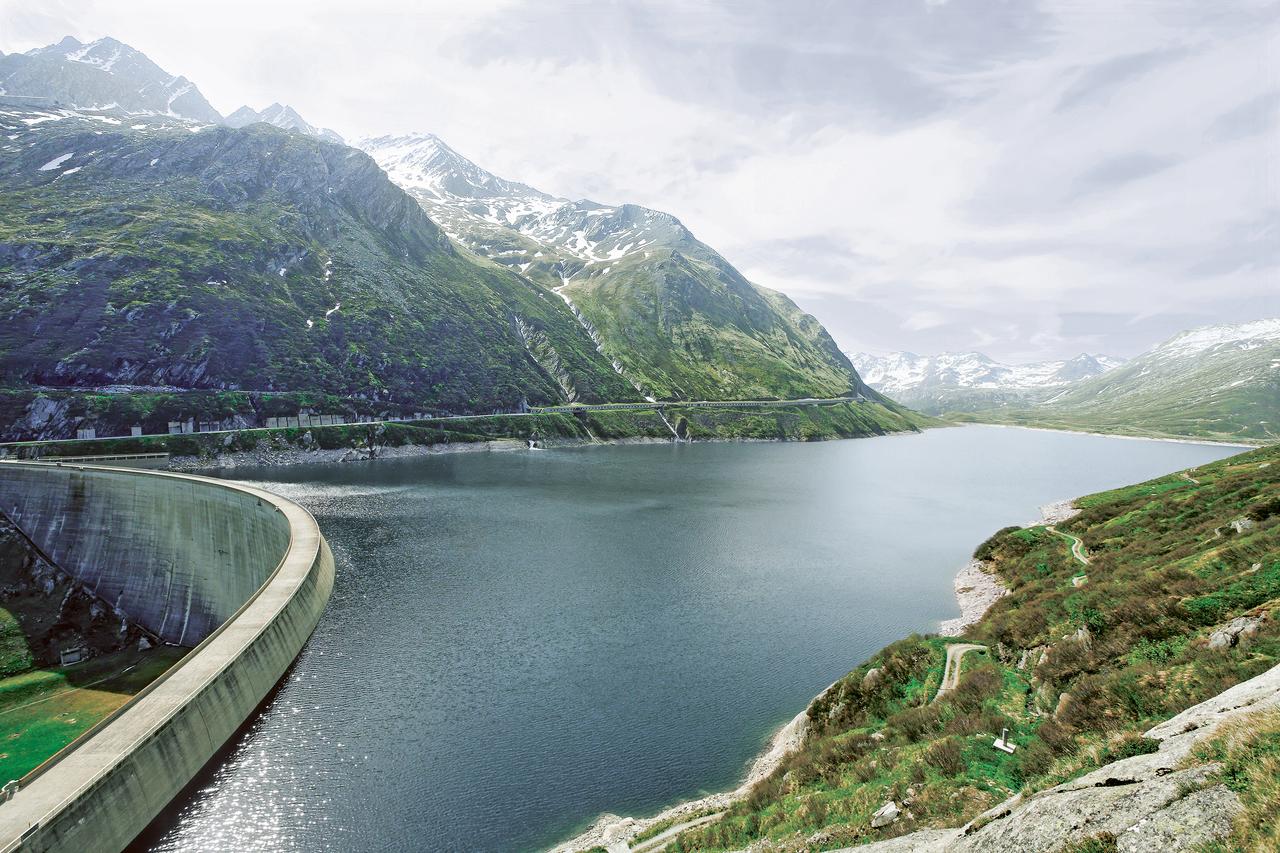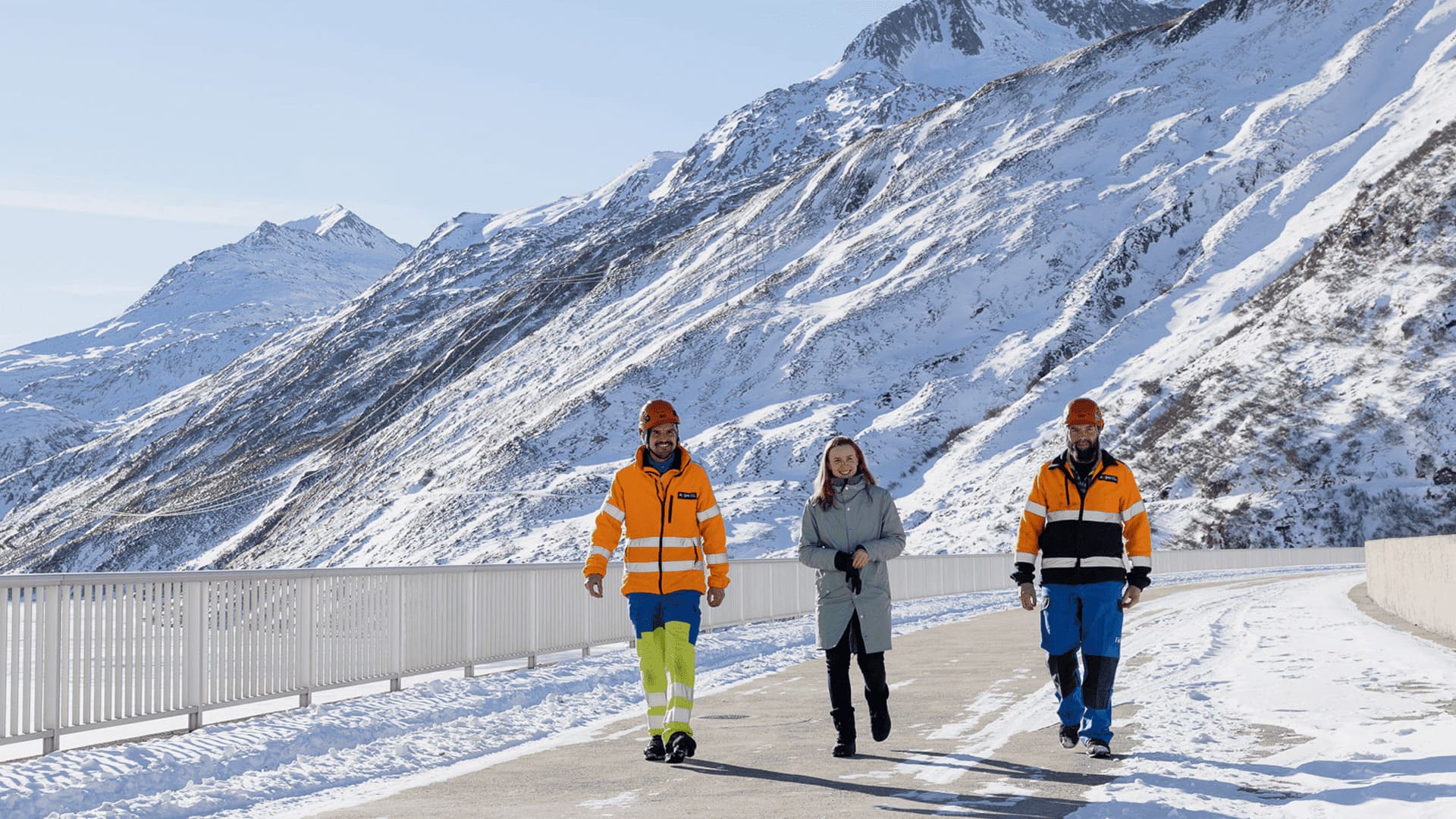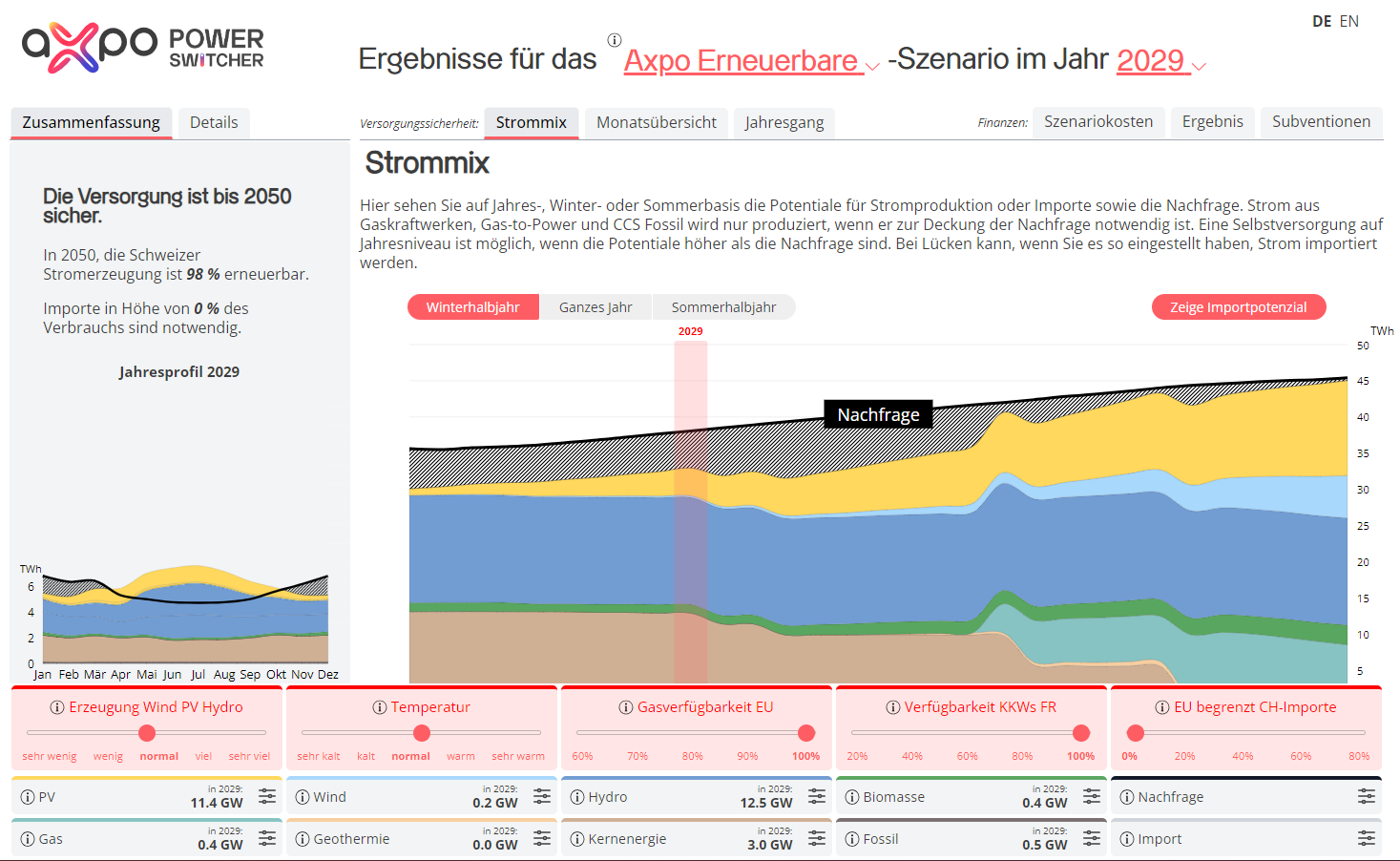17.01.2025 | Everything you need to know about Axpo
10 common misconceptions about Axpo
In the course of the public debate about the remuneration of Axpo's management, various facts have been intentionally or unintentionally misrepresented. We have collected some of them and set the record straight.
Wrong. Less than 2% of Axpo's profit comes from business with monopoly end customers. Axpo only supplies tied end customers via its subsidiary CKW and these tariffs are regulated. CKW was one of the cheapest providers 2024 in Switzerland and has reduced its prices by a further 30 per cent as of 2025.
Rather, the good result of the last financial year was largely due to the international customer and trading business. At CHF 1.1 billion, this again made the largest contribution to earnings in the past financial year. In particular, there was once again a high level of interest from industrial companies in long-term electricity contracts. Axpo has been strongly positioned in this business for many years. In general, Axpo was once again able to enjoy significant customer growth in the face of tough international competition.
Wrong. Axpo only supplies bound end customers via its subsidiary CKW and these tariffs are regulated. CKW was one of the cheapest suppliers in Switzerland in 2024 and has reduced its prices by a further 30 per cent as of 2025. Axpo is also one of the cheapest providers in Switzerland in terms of grid tariffs, which are also set by the regulator. Finally, it must be emphasised that Axpo has no influence whatsoever on the wholesale electricity price. This price is set internationally and Axpo must accept it just like all other market participants.
Misleading. Axpo is in free competition for the larger companies, which can choose their own supplier in Switzerland's partially liberalised market. This means that Axpo can only compete if it makes an attractive offer. Profit maximisation at the expense of these customers is therefore ruled out. Outside Switzerland, where the majority of Axpo's profits have come from in recent years, Axpo is in any case 100% exposed to free competition.
Axpo had already sold the electricity that was supplied in Switzerland in 2022-2024 at very low prices. three years earlier - i.e. in 2019-2021 - at an average of less than 6 cents/kWh. In these years 2022-2024, the average was around 14 centimes.
Many customers benefited from this during the crisis as they were protected from the sudden price increases thanks to the long-term contracts.
In terms of the grid utilisation tariffs set by the regulator, the Axpo Group will be one of the cheapest providers in Switzerland in 2025.
Three times wrong. In the last 10 years, Axpo has generated more than half of its operating profit abroad, and in the last 3 years even far more. In contrast, the profit share from monopoly end customers in Switzerland last year was less than 2% of Axpo's total profit, i.e. completely negligible. Even medium-sized consumers, such as most industrial companies, are free to choose their electricity supplier in Switzerland - Axpo only gets a chance if it makes the best offer.
The high level of investment in Switzerland's security of supply can only be financed with the profits generated abroad. In the last 5 years, Axpo has invested 1.2 billion in Switzerland alone and created 1200 new jobs in Switzerland alone. No other energy company has invested as much in Switzerland over the last 10 years as Axpo. After all, Axpo alone covers 40% of the demand for electricity in Switzerland, more than twice as much as the second-largest and four times as much as the third-largest player in the market.
There are a lot of completely made-up figures circulating about how much individual retailers are supposed to earn, which bear no relation to reality.
The remuneration paid to our employees is in line with the market and customs in the industry, which is regularly reviewed through internal and external processes. At Axpo, all employees participate in the company's success with a variable performance component.
In the trading business at Axpo, part of the profit-related remuneration is paid out directly and part is deferred. At the same time, traders are also directly involved in any failure via a special malus system.
Please refer to the information on remuneration in the 2023/24 Annual Report. For reasons of personal rights and protection, we are not permitted to provide any further details on the employment contracts and salary payments of individual employees.
Wrong. In the energy sector, production and trade are closely intertwined. It is not enough to start up a power plant, feed the electricity into the grid and then hope that someone will be able to use it. Trade is the sales channel for our electricity product.
In a world that is increasingly characterised by more distributed, decentralised production with renewables across Europe, trade will become even more important in the future, also because certain regions are better suited to certain technologies depending on their geography.
Our trading decisions are based on detailed and fundamental analyses, ranging from weather forecasts to well-founded risk assessments. At Axpo, trading comprises in particular the customised customer business, known as "origination", which offers supply contracts with end customers and electricity purchase agreements. It also includes the marketing of own production (asset-backed trading) and, to a lesser extent, proprietary trading.
In Axpo's case, electricity trading is therefore primarily nothing more than supplying customers with electricity that must first be purchased (from its own or third-party power plants). This also benefits numerous Swiss customers at home and abroad.
The customer and trading business has generated the majority of Axpo's operating profit over the last 10 years. If it were only speculation, such results would not be possible over such a long period.
Wrong. It is true that the Federal Council granted Axpo the option of a credit line at the height of the European energy crisis in September 2022. However, Axpo never had to utilise this option and instead covered all its liabilities from its own resources. At Axpo's request, the federal decree was revoked on 1 December 2023
An external management audit did not identify any significant deficiencies or objections. It certifies that Axpo has a detailed and well-documented risk management concept.
Thanks in particular to its successful trading and international business, Axpo 2022 weathered the European energy crisis well and never utilised the credit line. The diversification in terms of markets and business areas helped to absorb the liquidity requirements from the hedging of Swiss production.
On the one hand, the income from abroad enables investments to be made in Switzerland - as Axpo has made the majority of its investments in Switzerland over the past 10 years, while the majority of its income has come from abroad. The project portfolio for electricity generation and transmission for the coming years includes investments totalling several billion CHF in Switzerland.
On the other hand, every wind turbine and every solar park that Axpo makes possible in Europe also benefits Switzerland. After all, security of supply must be thought of in European terms: Switzerland can only import electricity if Europe has enough.
The comparison with 2022/23 (some media reports of an 80% increase) is misleading because no variable remuneration could be paid out at all in this financial year due to the provisions of the credit line. Any comparison with 2022/23 will therefore show a large increase.
The increase for FY 2023/24 is largely due to the excellent results of the financial year (second-best year in Axpo's history). Compared to 2021/22, for example, adjusted EBIT increased from CHF 392 million to CHF 1848 million (+470%). The second reason for the increase is that an external benchmark has shown that remuneration has so far been rather low compared with comparable companies.
Looking at the increase over several years, it becomes clear that the target remuneration of the current CEO is only around 9% higher than the inflation-adjusted target remuneration of the previous CEO when he left the company in 2020.
Even after the real 9% adjustment, the remuneration of Axpo's CEO is significantly lower than that of comparable European energy companies and Swiss industrial companies and is similar to that of other large Swiss energy companies under public-sector control, even though Axpo is significantly larger.
In addition, Axpo does not pay any bonuses at all; instead, employees at all levels only receive part of their salary if targets set by the Board of Directors are achieved. This ensures that management in particular earns significantly less in lean years.
In recent years, the management was able to achieve important successes. In the period from 2019 to 2024, the number of employees increased by over 40%, equity was doubled (to CHF 13 billion) and dividends totalling CHF 830 million have been distributed since 2019. These dividends directly benefit the owner cantons and their populations. In addition, Axpo has paid almost CHF 700 million in taxes in Switzerland over the same period. In total, Axpo has thus generated around CHF 7 billion in value for its owners, and thus for the 3.3 million citizens of the 9 owner cantons. This is far more than many other companies have achieved in the same period.
Axpo has no influence on electricity prices and has not benefited from the high electricity prices of the recent past because it had already sold its electricity before prices rose.




.jpg)





